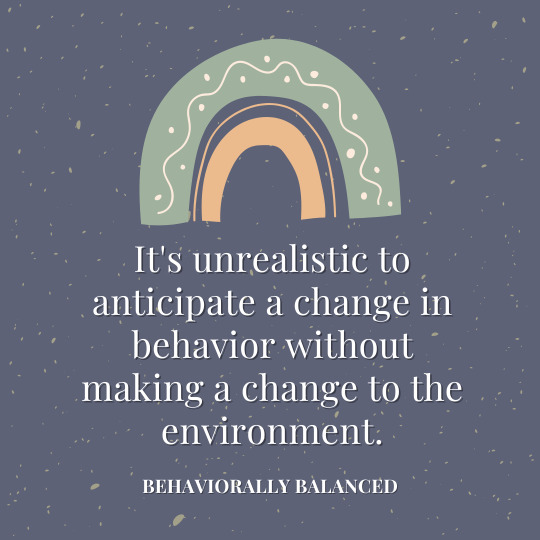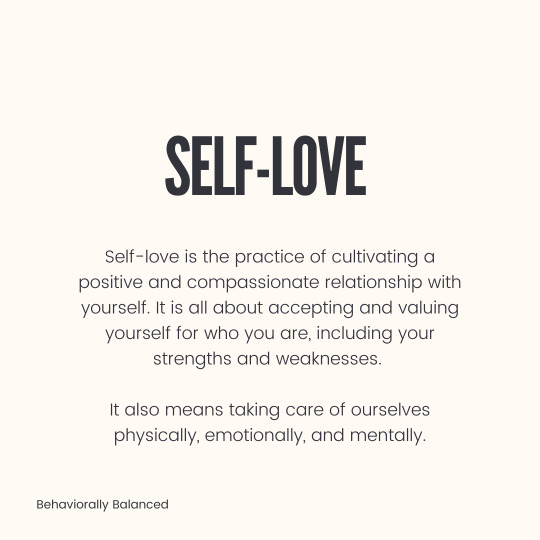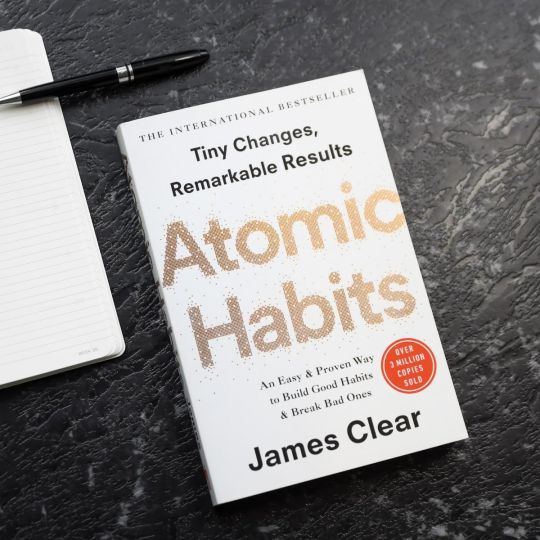#Behavior change
Explore tagged Tumblr posts
Text
1/3/25
How did yesterday go?
Pretty good. I was off work early.
I got a massage, and then Went store walking at Homegoods and Sierra. I am back to playing Pokemon. I used to play from 2016-2018... and quit when I ran into my cheating then wife and her new girlfriend.
I used to play daily and I really enjoyed it. I was able to recover my account.
So what is the point of that? Having something to do that is mentally involving without being stressful, and encourages walking.
So we will see if it helps me bahaha
I invited my girl out for dinner when I got hungry and was still in town at 5 pm.
She was not interested. I realized I still had errands to do- pharmacy and Walmart. So I went and got in line at CVS. I did have a protein bar in my car. I shouldn't have tho, it was too cold to be good.
I didn't actually get home til 7. I had my leftover cottage pie. Then finished a bag of skinny pop- 1 bowl. 2 spoons of halotop and about 1/4 of artic zero.
I got overtired and realized walmart left something out of my order so I had to contact them. The urge to eat hit and I went for some sugar free chocolate covered pecans.

I had the thought oh I just can't stop eating. And then I thought- that is fucking bullshit. You are eating because you are overtired and you and choosing to.
And I was able to stop.
That was a huge win.
Huge win. Here is to 179, 169, 159 and goal.
#behaviors#big back#healthy lifestyle#getting healthy#losing weight#healthy eating#fitblr#healthy habits#operation lose this gut#weight loss#operationlosethisgut#weight loss journey#road to 179#road to 169#road to 150#behavior change#atomic habits#just do it#good day#pokemon#pokemon go#now playing#have fun#walking#distract yourself#new year 2025#spring 2025#weight loss goals#focus on yourself#focus on change
4 notes
·
View notes
Text
"Asking 'Who is the villain?' is the prologue to asking who should be punished. But asking 'What are the conditions that led to this?' leads us to consider how to change those conditions so that the situation is less likely to happen again.
Reframing things in this way is a type of analysis known as dependent origination. Though this term has far-reaching and often abstract implications in Buddhist thought, it simply means that everything arises on the basis of multiple factors, and if we want to discourage something from happening again we have to address the factors underlying it. If our goal is to judge and punish, we will need to determine guilt, which becomes more difficult as we consider more causes. But if our goal is to gain a better understanding, then the fact that there are many factors is not a problem."
- Matthew Gindin, from "The Red Hat Rorschach Test." Tricycle, 30 January 2019.
#matthew gindin#quote#quotations#causality#dependent origination#interdependence#interconnectedness#understanding#zen#buddhism#change#activism#problem solving#behavior change#blame#villains#antagonists
42 notes
·
View notes
Text

You have to change the environment to see real change.
#bcba#bcaba#mindfulness#mental health#self care#self improvement#education#psychology#meditation#bb community#self love#self help#positive quotes#life quotes#words#student life#study tips#behavior and cognition#behavior management#behavior change#applied behavior analysis
15 notes
·
View notes
Text
my future self will thank me for this
my future self will thank me for this
my future self will thank me for this
#i'm doing the dishes and being so brave about it#but also like. in general i've noticed that this is my number 1 motivator#'things will be easier down the line'#behavior change
5 notes
·
View notes
Text
How to Overcome Procrastination and Take Control of Your Life in 5 sec!
Do you often find yourself procrastinating on tasks you know you need to do? Do you struggle to take action on your goals? This simple yet powerful rule has helped millions of people worldwide, today we will explore the benefits of the 5 Second Rule and how you can apply it to your own life. 5. 4. 3. 2. 1. … Lets Go! The 5 Second Rule is a simple, yet powerful tool that can be used to overcome…

View On WordPress
#achievement#anxiety#behavior change#Confidence#decision-making#discipline#empowerment#focus#goal achievement#goal-setting#habit building#habit formation#habits#happiness#Inspiration#life coaching#Mel Robbins#Mental health#mental toughness#Mindfulness#mindset#motivation#performance#personal achievement#personal development#personal growth#positive thinking#positivity#procrastination#Productivity
3 notes
·
View notes
Text
Why you need sometimes to build habits instead of setting goals?
Hello there! In this blog post, we’ll explore the idea of why setting goals may not be the best approach to personal growth and development. We’ll discuss the potential drawbacks of goal-setting and offer an alternative approach that emphasizes building habits instead.Many of us are familiar with the idea of setting goals. Whether it’s losing weight, saving money, or achieving a career milestone,…
View On WordPress
#Ankur Warikoo#behavior change#dailyprompt#do epic shit#fulfillment#goal setting#habit formation#habits#habits vs goals#lifestyle changes#mindset#motivation#personal growth#positive habits#productivity#self improvement#Success#sustainable change
2 notes
·
View notes
Text
Persuasion
Persuasion is everywhere—ads, friends, and even parents! Learn how it works, how to spot tricks, and how to use it for good. A fun, simple guide for staying sharp and making smart decisions. #Persuasion #CriticalThinking #LifeSkills #FunLearning
“To swallow and follow, whether old doctrine or new propaganda, is a weakness still dominating the human mind.” — Charlotte Perkins Gilman, Human Work (1904) The Power of Persuasion Persuasion is all around us. Whether it’s a TV ad making you crave a burger, a friend convincing you to try a new game, or a parent encouraging you to eat vegetables, persuasion influences our choices daily. But…
#advertising tricks#attitude inoculation#audience awareness#behavior change#central route#childhood education#cognitive skills#communication skills#consumer awareness#critical thinking#decision-making#education#emotional appeals#fun learning#life skills#logical thinking#making smart choices#marketing strategies#media influence#media literacy#peer pressure#peripheral route#Personal Growth#persuasion#persuasion techniques#resisting persuasion#social influence#staying sharp#understanding persuasion
0 notes
Text
When You're the Problem: On Accountability and Self-Reflection
Tired of feeling stuck? It’s time to face the truth and unlock real growth through accountability and self-reflection. Let’s get real together. #SelfGrowth #Accountability #RealTalk
Explore how accountability and self-reflection can lead to personal growth, stronger connections, and greater self-confidence. Uncover practical steps and methods to face your fears and transform your life. I’ll admit it proudly: I’m a Swiftie. Unless you’re living under a rock, you’ve probably heard the anthem of accountability and self-reflection: Anti-Hero. Of course, this song isn’t exactly…
#accountability#accountability and growth#accountability practices#authentic self#becoming your best self#behavior change#boundaries#breaking unhealthy patterns#building emotional resilience#building resilience#Building self-confidence#building self-trust#building trust#changing old habits#conflict resolution#confronting emotional patterns#confronting toxic behavior#dealing with self-doubt#developing emotional intelligence#Embracing vulnerability#Emotional awareness#emotional clarity#emotional growth#emotional healing#emotional health#emotional honesty#emotional intelligence#emotional maturity#empowerment#facing your fears
1 note
·
View note
Text
5 Steps for Post-Traumatic Growth
I’ve been savoring Flourish, by Martin Seligman. It’s about positive psychology, which fascinates me and helps me with my self-development and my coaching practice. I love this book because it’s so promising – for example, we can change our lives by focusing on gratitude. However, in this post, I want to focus on what happens after we experience trauma. In the chapter about the army, I…

View On WordPress
0 notes
Text


I love how Gerald was trying to keep Shadow from spoiling anything about the future meanwhile literally everything Shadow says and does around Maria is the biggest death flag ever
#in fairness i’m sure both past robotniks just assumed her illness would be what killed her h a#sxsg#sxsg spoilers#sonic x shadow generations#shadow the hedgehog#maria robotnik#ark siblings#sonic#comic#my art#doodles#so this was pretty much entirely done 24 hours ago#but ironically was distracted from posting earlier by playing sxsg#and then watching snapcube play it cause her delight is addicting#i’m missing 2 chests and 2 bolts and I wanna see if I can pull it off without a guide haha#anyways now I’m thinking about the fact that maria and gerald probably went back to their time assuming maria would die of her sickness#and how that would change their respective behaviors#i bet gerald would be holding out that maria would still live a bit longer#just cause shadow inadvertently revealed he’s from at least 50 years in the future due to having met black doom before#(which rewatching cutscenes to remember this quote he Did try to play off a little bit with some sort of#‘oh what do you think the alien squid meant by ’this time i’ll beat you’ that’s so crazy’ comment)#so hey maybe it wasn’t a perfect cure but she managed to live another 10-20 years at least?#all the more reason to press harder surely!#meanwhile maria is coming to terms with her mortality at age 14 or whatever she is#frankly I bet she came to terms with it long ago the way she seems to be written#okay back to snapcube
14K notes
·
View notes
Text
Atomic Habits -The top 10 lessons
Here are the top 10 lessons from James Clear’s book Atomic Habits: 1. The Power of Tiny Gains: Small habits compound over time. Improving by just 1% each day leads to significant changes over a year. 2. Focus on Systems, Not Goals: Goals are about the results you want to achieve, while systems are about the processes that lead to those results. Building effective systems is key to long-term…
#1 Percent Better#Atomic Habits#Behavior Change#Continuous Improvement#Goal Setting#Habit Formation#Habit Stacking#Life Hacks#Mindset Matters#Motivation#Personal Development#self-improvement#Small Changes Big Results#Success Mindset#Systems Over Goals
0 notes
Text

The most important relationship is the one you cultivate with yourself. Learn how to practice self-love HERE.
#self improvement#self love#self growth#self help#self care#self discovery#self healing#self worth#pscyhology#self love quotes#love yourself#love quotes#behavior change#psychology quotes#motivation#mental health#mental health quotes#health and wellness#wellness#wellnesscoach
11 notes
·
View notes
Text
HOW TO OVERCOME OUR RESISTANCE TO CHANGE
It is helpful to simplify the brain into two distinct entities: the conscious (prefrontal cortex) and the subconscious (basal ganglia). The former is our Rider, and the latter is our Elephant. The Rider wants us to develop good habits. The rest of the brain is satisfied with things the way they are and doesn’t see a need to change. It likes its routines and the rewards associated with them. The…
1 note
·
View note
Text
Mastering the Art of Small Changes: How Atomic Habits Can Transform Your Life #TBRChallenge #bookchatter @Blogchatter
Building Success One Habit at a Time: Insights from James Clear’s Atomic Habits In a world obsessed with radical change and overnight success, James Clear’s Atomic Habits offers a refreshingly practical perspective that focuses on the power of small, incremental habits. The book suggests that the key to achieving long-term goals and making significant life changes isn’t in making massive leaps,…

View On WordPress
#Behavior change#goal-setting#Habit formation#James Clear#Life hacks#Personal Development#Productivity Tips#Self-improvement
0 notes
Text
Passion Struck, by Author, Speaker, and Podcaster John R. Miles
Twelve Powerful Principles to Unlock Your Purpose and Ignite Your Most Intentional Life Written by the leading authority on intentional behavior change, Author, Speaker, and Podcaster John R. Miles The book is available worldwide in print and digital format by Post Hill Press Inside of you resides an intentional life without limits.The time has come to awaken it. Are you living…

View On WordPress
#CreativeEdgePublicity#behavior change#IGNITE PERFORMANC & UNLOCK YOUR FULL POTENTIAL#John R. MIles#Passion Struck#Post Hill Press
0 notes
